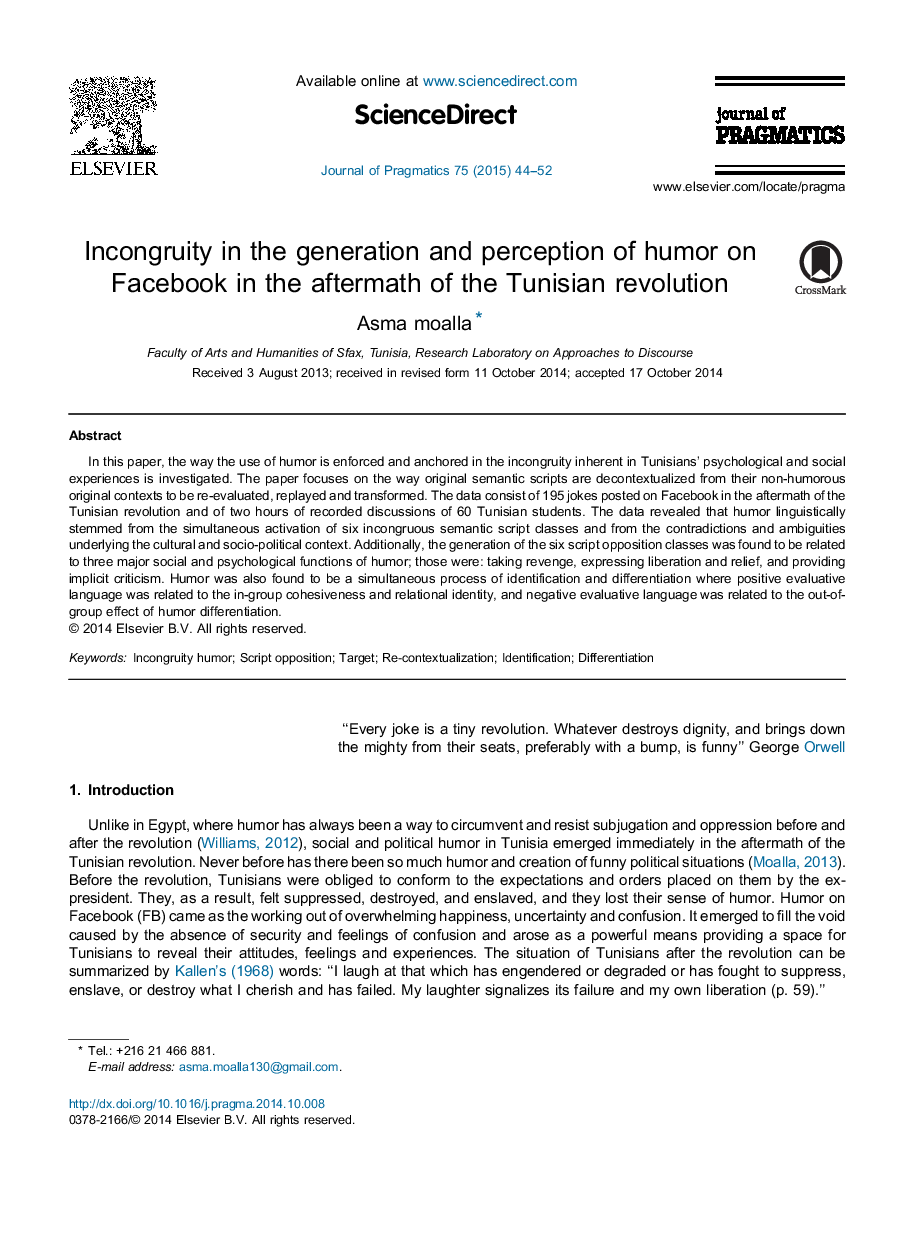| کد مقاله | کد نشریه | سال انتشار | مقاله انگلیسی | نسخه تمام متن |
|---|---|---|---|---|
| 932673 | 1474725 | 2015 | 9 صفحه PDF | دانلود رایگان |
• We examine incongruity in the use of humor on Facebook in the Tunisian revolution.
• We found that humor was generated by simultaneously activating six script opposition classes.
• Taking revenge, expressing liberation and relief, and implicit criticism were associated with incongruity humor generation.
• Incongruity in the scripted text echoed Tunisians’ ambiguous environment.
• Aggression toward the target enhances rapport and social affiliation.
In this paper, the way the use of humor is enforced and anchored in the incongruity inherent in Tunisians’ psychological and social experiences is investigated. The paper focuses on the way original semantic scripts are decontextualized from their non-humorous original contexts to be re-evaluated, replayed and transformed. The data consist of 195 jokes posted on Facebook in the aftermath of the Tunisian revolution and of two hours of recorded discussions of 60 Tunisian students. The data revealed that humor linguistically stemmed from the simultaneous activation of six incongruous semantic script classes and from the contradictions and ambiguities underlying the cultural and socio-political context. Additionally, the generation of the six script opposition classes was found to be related to three major social and psychological functions of humor; those were: taking revenge, expressing liberation and relief, and providing implicit criticism. Humor was also found to be a simultaneous process of identification and differentiation where positive evaluative language was related to the in-group cohesiveness and relational identity, and negative evaluative language was related to the out-of-group effect of humor differentiation.
Journal: Journal of Pragmatics - Volume 75, January 2015, Pages 44–52
